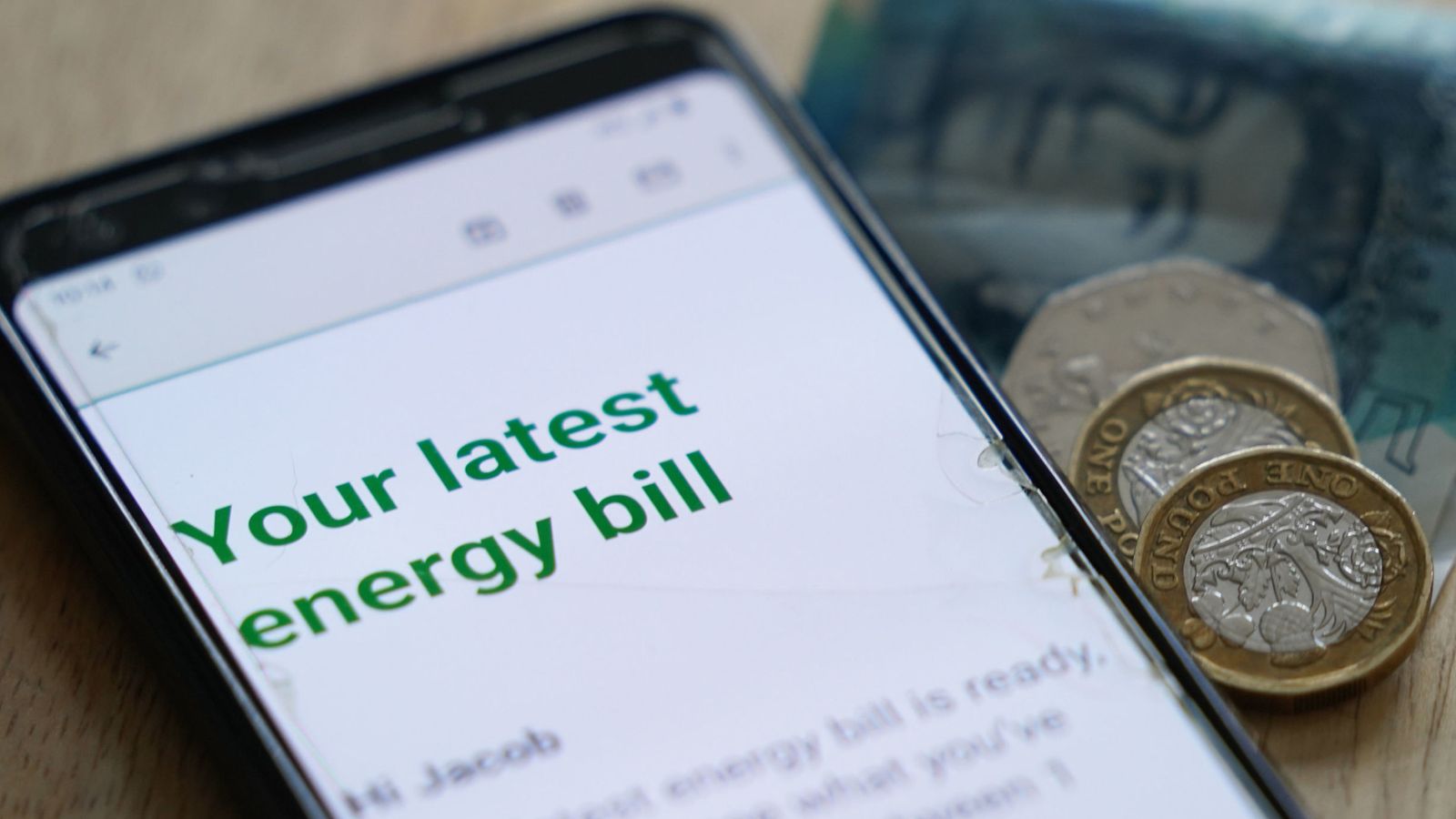The energy price cap will rise to an average annual £1,717 from October, the industry regulator has confirmed as the clock ticks down to the loss of winter fuel payments for millions of pensioners.
The new figure represents a 10% a year – or £12 per month – leap in the typical sum households face paying for gas and electricity when using direct debit.
Ofgem said that the rise was largely due to higher wholesale gas prices and it urged bill-payers to “shop around” as there are fixed rate deals on the market that could offer savings.
Money latest: Warning £2,500 will be added to stamp duty ‘overnight’
Its decision means the cap, which is adjusted every three months and limits what suppliers can charge per unit of energy, will remain around £500 up on the average annual bill levels seen before Russia’s invasion of Ukraine.
It is, however, set to be £117 lower than the October 2023 level.
That gap may partly explain why chancellor Rachel Reeves likely opted to end winter fuel payments – worth up to £300 annually – for around 10 million pensioners not in receipt of means-tested benefits including pension credit.
She blamed the measure, revealed last month, on the need to help plug a “black hole” in the public finances left by the Conservatives but has faced a widespread backlash including from within Labour’s own ranks.
Charities warn that heating costs remain punitive and a key plank of the continuing cost of living crisis that will force many to choose between heating and eating this winter.
Research by Citizens Advice suggests one in four could be forced to turn off their heating and hot water amid record levels of energy debt.
Energy Secretary Ed Miliband admitted the rise in the cap was “deeply worrying” but defended the cuts.
“The truth is that the mess that was left to us in the public finances is what necessitated that decision around winter fuel payment and us focusing it on those who need it the very most.
“That’s why this government is also driving throughout the coming months to get the people, the 880,000 pensioners who are entitled to pension credit and not getting it to try and get them to take it up, to make them aware of this so they can get the winter fuel payment as well.”
An updated forecast issued by the energy research consultancy Cornwall Insight predicted a further 3% hike in the cap during the peak use months of January-March to £1,762.
Ofgem chief executive Jonathan Brearley said: “We know that this rise in the price cap is going to be extremely difficult for many households. Anyone who is struggling to pay their bill should make sure they have access to all the benefits they are entitled to, particularly pension credit, and contact their energy company for further help and support.
“I’d also encourage people to shop around and consider fixing if there is a tariff that’s right for you – there are options available that could save you money, while also offering the security of a rate that won’t change for a fixed period.
“We are working with government, suppliers, charities and consumer groups to do everything we can to support customers, including longer term standing charge reform, and steps to tackle debt and affordability.
“Options such as changing how standing charges are paid and getting suppliers to offer more tariff choices and give customers more control are all on the table, but there are no silver bullets.
“Any change could leave some low-income households worse off, so it’s important we hear views on our proposals and continue working with the government to see what targeted support could help customers.
“Ultimately the price rise we are announcing today is driven by our reliance on a volatile global gas market that is too easily influenced by unforeseen international events and the actions of aggressive states. Building a homegrown renewable energy system is the key to lowering bills and creating a sustainable and secure market that works for customers.”
The government’s energy strategy includes measures to eradicate the country’s dependence on natural gas for heating and electricity through a greater commitment to wind power, including onshore.
The hope is for lower bills in the future.
Jess Ralston, head of energy at the Energy and Climate Intelligence Unit said: “A lack of progress on energy efficiency and heat pumps means that our reliance on gas hasn’t fallen much in recent years, despite the volatility in the international markets forcing bills to skyrocket.
“The new government has made steps on renewables, but not confirmed its plans for home heating or insulation yet, and there is clearly no time to waste.
“Unless we start to reduce our demand for gas, we will only see our dependence on foreign imports rise. Oil and gas from the North Sea is sold on international markets to the highest bidder so doesn’t help with our bills or energy independence.
“With the removal of the winter fuel payment for some pensioners at the same time as bills going up, it’s likely that some will struggle and it remains to be seen if the government will bring in measures to support those worst hit by the removal of winter fuel payment.”




